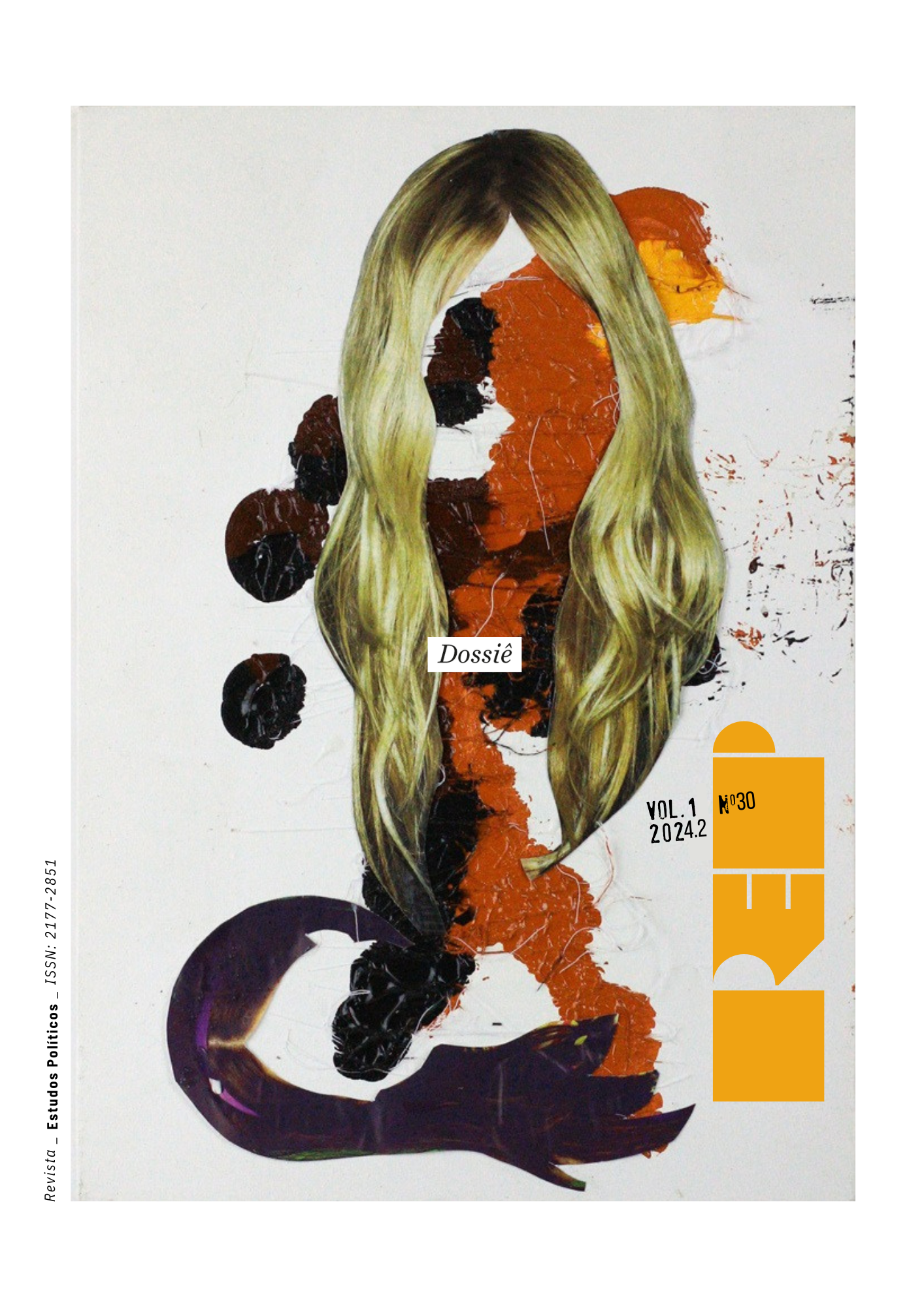Epistemologias queer e direito: apagamentos na pesquisa brasileira entre 2019-2023 e os embates ao reconhecimento de uma teoria jurídica queer
DOI:
https://doi.org/10.22409/rep.v15i30.66079Abstract
Resumo: O presente artigo se propõe a abordar a temática das epistemologias queer na ciência jurídica brasileira, a partir da investigação em plataformas de artigos, teses e dissertações no período de 2019 a 2023, notadamente no que se refere à existência de pesquisas que reconheçam uma teoria queer do Direito. Nesse viés, o objetivo geral do artigo é analisar os referenciais epistemológicos existentes na pesquisa brasileira – especificamente teses, dissertações e artigos - disponíveis em três plataformas: Banco de Teses e Dissertações da Coordenação de Aperfeiçoamento de Pessoal de Nível Superior (CAPES), Biblioteca Digital Brasileira de Teses e Dissertações (BDTD) e Scientific Electronic Library Online (SCIELO). A partir da apresentação desses resultados, pretende-se responder as seguintes questões norteadoras: a pesquisa jurídica brasileira já dispõe de um referencial epistemológico consistente acerca da existência de uma teoria jurídica queer no Brasil? Quais os desafios no reconhecimento de uma teoria que possa servir como parâmetro para o desenvolvimento de pesquisas jurídicas voltadas às identidades de gênero e sexualidades dissidentes no Brasil? A metodologia é de abordagem qualitativa, usando como procedimento técnico a pesquisa bibliográfica e o método de estado da arte, com a posterior leitura crítica e analítica das informações. Como resultados, compreende-se que no Brasil, a concepção de uma teoria jurídica queer ainda não foi confirmada, existindo pesquisas que tratam da temática apenas de forma
interdisciplinar, com o amparo de pesquisadores de outras áreas, o que faz da ciência jurídica ainda insuficiente em relação às discussões abordadas pela teoria queer.
Palavras Chave: Direito Heteronormativo. Epistemologias Queer. Gênero. Sexualidade. Teoria jurídica queer. Teoria queer do Direito.
Abstract: This article proposes to address the issue of queer epistemologies in Brazilian legal science, from the investigation in platforms of articles, theses and dissertations in the period from 2019 to 2023, in the concerning the existence of researches that recognize a queer theory of Law. In this bias, the general objective of the article is to analyze the existing epistemological references in Brazilian research – specifically theses, dissertations and articles - available in three platforms: Bank of Theses and Dissertations of the Coordination of Improvement of Higher Education Personnel (CAPES), Brazilian Digital Library of Theses and Dissertations (BDTD) and Scientific Electronic Library Online (SCIELO). From the presentation of these results, it is intended to answer the following guiding questions: does Brazilian legal research already have a consistent epistemological framework about the existence of a queer legal theory in Brazil? What are the challenges in recognizing a theory that can serve as a parameter for the development of legal research focused on gender identities and dissident sexualities in Brazil? The methodology is a qualitative approach, using as a technical procedure the bibliographic research and the state of the art method, with the subsequent critical and analytical reading of the information. As results, it is understood that in Brazil, the conception of a queer legal theory has not yet been confirmed, and there is research that deals with the theme only in an interdisciplinary way, with the support of researchers from other areas, which makes legal science still insufficient in relation to the discussions addressed by queer theory.
Keywords: Heteronormative Law. Queer Epistemologies. Gender. Sexuality. Queer legal theory. Queer Theory of Law.
Downloads
Downloads
Published
Issue
Section
License
Copyright (c) 2025 Marli Marlene Moraes da Costa , Nariel Diotto

This work is licensed under a Creative Commons Attribution 4.0 International License.
Para submeter um manuscrito, os autores devem realizar o cadastro na plataforma, fornecer os dados solicitados e seguir as orientações recomendadas. Para tanto, será necessário apresentar o número da identidade de pesquisador. Para obtê-lo, é necessário realizar o cadastro na plataforma Open Researcher and Contributor ID (ORCID).
Ao submeter um manuscrito, os autores declaram sua propriedade intelectual sobre o texto e se comprometem com todas as práticas legais relativas à autoria. A submissão implica, ainda, na autorização plena, irrevogável e gratuita de sua publicação na REP, a qual se responsabiliza pela menção da autoria.
A REP tem acesso aberto e não cobra pelo acesso aos artigos.
Orientando-se pelo princípio de que tornar público e disponibilizar gratuitamente o conhecimento científico contribui para a democratização mundial do conhecimento, a REP adota a política de acesso livre e imediato ao seu conteúdo.
No mesmo sentido, a REP utiliza a licença CC-BY, Creative Commons, a qual autoriza que terceiros distribuam, remixem, adaptem e criem a partir do trabalho, inclusive para fins comerciais, desde que se reconheça e torne público o crédito da criação original.
Para mais informações, contatar a editora através do e-mail revistaestudospoliticos@gmail.com


